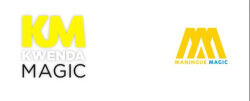
After more than 40 years of operation, DTVE is closing its doors and our website will no longer be updated daily. Thank you for all of your support.
MultiChoice launches new channels for Mozambique and Angola
Pan-African pay TV operator MultiChoice has launched two new TV channels – Maningue Magic and Kwenda Magic – for audiences in Mozambique and Angola respectively.
 The new Portuguese-language channels will show dramas, telenovelas, local versions of hit reality shows, comedies, dubbed international content and homegrown music on MultiChoice’s DStv and GOtv platforms from today.
The new Portuguese-language channels will show dramas, telenovelas, local versions of hit reality shows, comedies, dubbed international content and homegrown music on MultiChoice’s DStv and GOtv platforms from today.
Over the past 18 months, MultiChoice has grown its local content offering through several channel launches including Pearl Magic Prime, Akwaaba Magic and Abol TV in Uganda, Ghana, and Ethiopia, as well as investing in international co-productions like Reyka and ongoing local productions like the ever-popular Big Brother Naija.
The group produced an additional 2,692 hours of local content in 2021, up 41% year-on-year. According to the company, the combined MultiChoice local content library is now approaching 66,000 hours and represents 45% of total general entertainment content spend.
Maningue Magic content includes telenovela Maida, Mozambican music show Estação do Boss, dating show Date My Family Moçambique, original drama The Influencer, celebrity-focused Top+, and fashion, arts and lifestyle show Txunado.
Kwenda Magic features shows including Angolan telenovela O Rio, drama Makongo, and sitcom Salão de Beleza..
“These channel launches are an exciting milestone for MultiChoice, and our hyperlocal strategy. MultiChoice’s mission is to showcase Africa’s diverse, rich culture through our continent’s deep storytelling history. To have two new 24-hour channels in local languages, featuring locally produced content, provides an incredibly powerful platform to do this,” said Joao Ribeiro, channel head for both Kwenda Magic and Maningue Magic.
Speaking about MultiChoice’s ‘hyperlocalisation’ strategy, MultiChoice Africa CEO Fhulufhelo Badugela said, “When we develop local channels or produce local content, we aim to create a platform that reflects local culture, so audiences see themselves represented in the content they watch. Localisation goes beyond simply duplicating popular formats in a different language or with a different cast. It’s about incorporating a country’s social, gender and religious conventions, as well pop-culture trends like music, influencers and celebrities into stories. This is what makes our hyperlocal strategy unique and exciting.”


